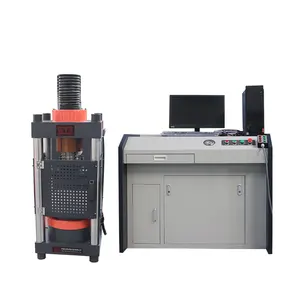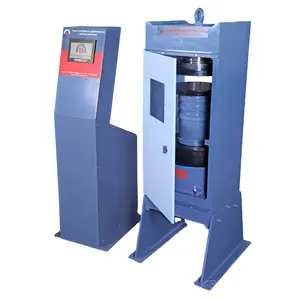
3000kn Technology Production Compression Pressure Test Equipment Concrete Cube Testing Machine Price





Concrete compression testing machines are essential tools in the construction industry, designed to measure the compressive strength of concrete structures. This testing ensures that concrete used in construction meets the required standards for safety and durability. By applying compressive force to a concrete sample until failure, these machines provide critical data used in engineering and construction projects.
There are various types of concrete compression testers tailored to diverse applications. From manual to automatic models, these machines serve a fundamental role in quality control in both laboratory and field settings. They are commonly used by engineers, construction companies, and quality control laboratories to assess the performance of concrete used in buildings, bridges, and pavements.
A typical concrete strength testing machine is built with robust materials capable of withstanding high stress and loads. They come equipped with features such as digital displays for precise measurements, adjustable test parameters, and hydraulic loading systems. The construction of these machines often involves heavy-duty steel frames to ensure stability and longevity during the testing process.
Utilizing a compression testing machine for concrete offers numerous advantages. It provides objective data on the material properties, which is crucial for compliance with international standards and safety regulations. Moreover, these machines help in identifying potential issues in concrete mixtures, thus preventing structural failures that could lead to costly repairs or accidents.
When selecting a concrete compressive strength testing machine, it is important to consider the maximum force capacity, the size of the specimens to be tested, and the specific requirements of the testing standards. Buyers should also evaluate the machine's accuracy, ease of operation, and data recording capabilities to ensure they meet their testing needs.
Regular maintenance and calibration are vital for the consistent performance of a concrete pressure testing machine. Proper upkeep ensures the longevity of the equipment and the accuracy of test results. Calibration should be performed periodically by certified professionals to maintain the machine's precision in line with industry standards.